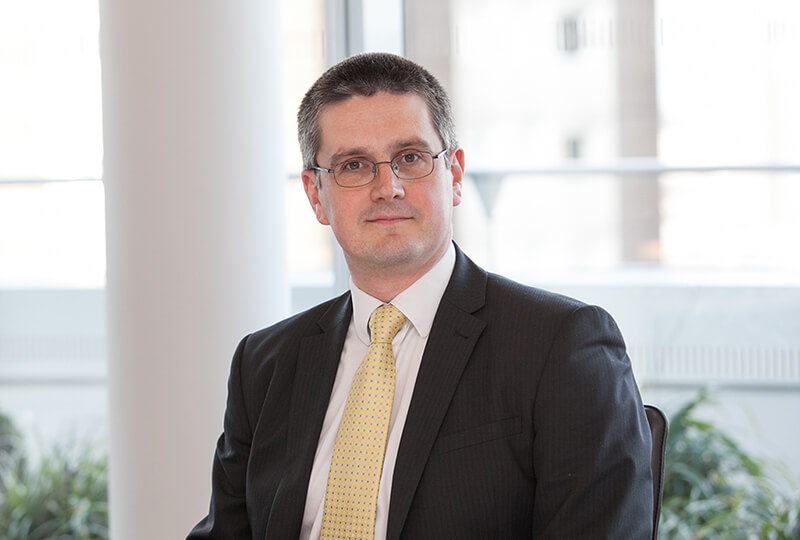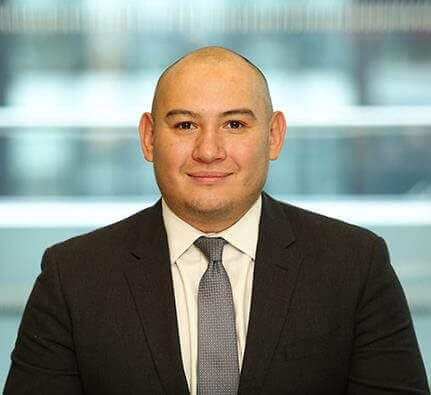Balancing the Burden and Benefit: Withdrawal of Care due to a Permanent Coma
-
Market Insight 10 August 2023 10 August 2023
-
Asia Pacific, UK & Europe
-
People dynamics
-
Healthcare
Clyde & Co have successfully supported an NHS Trust with an application to the Court of Protection for declarations that it was no longer in a comatose patient’s best interests to continue to receive Clinically Assisted Nutrition and Hydration (“CANH”). IN’s condition was one of a Prolonged Disorder of Consciousness (PDOC), and he had been in a coma since December 2022.
IN’s care included a tracheostomy, CANH via an NG tube and a catheter and was objectively burdensome. IN was totally dependent on nursing staff who identified a downward trajectory in his condition, despite medical interventions.
Application
Clyde & Co prepared the evidence and applied to Court as there was no prospect of any recovery of function or improvement to his quality of life. It was submitted that it would be in IN’s best interests to withdraw CANH and commence palliative care.
The family disagreed although they accepted the medical analysis. They believed IN was a fighter and that God might perform a miracle. They remained of the view that all life sustaining measures should be continued and maintained that was what IN would have wanted.
The final hearing took place in July 2023 before Mr Justice Poole. The Trust was represented by Rhys Hadden of Serjeants Inn. IN, by his litigation friend the Official Solicitor, was represented by Emma Sutton KC, also of Serjeants Inn. IN’s family were unrepresented.
Judgment
Mr Justice Poole found that the presumption that life should be preserved was displaced by the weight of the countervailing evidence. His judgment sets out his reasoning in some detail.
In brief, there was irrefutable evidence as to IN’s PDOC status of ‘permanent coma’, extremely poor prognosis and objectively poor quality of life. Mr Justice Poole was hesitant to call CANH ‘futile’, but said he found it difficult to identify any wider benefits to IN from continuing to receive CANH in the circumstances.
Amongst other things, Mr Justice Poole considered the concept of ‘burdensome treatment’ and, with reference to Re A (A Child) [2016] EWCA Civ 759, and Parfitt v Guy’s and St Thomas’ Children’s NHS Foundation Trust [2021] EWCA Civ 362, his conclusion was that even though IN could not experience pain, it did not follow that continued treatment was not burdensome. At [42], he concluded that: “The provision of CANH will only prolong his burdens and give him no benefit. Even though his life expectancy with continued CANH is relatively short, for so long as he is given CANH, his burdens are continued.”
In conclusion, Mr Justice Poole allowed the Trust’s application by finding that it was not in IN’s best interests to continue to receive CANH. Accordingly, the withdrawal of CANH in accordance with the Trust’s step-by-step withdrawal of care plan was deemed to be in his best interests and lawful.
Case commentary
This was a tragic case and unusual due to IN’s ‘permanent coma’. It was clear how upsetting it was to both IN’s family and those treating him.
In a practical sense, this case reinforced the developed case law in this area and highlighted the importance of knowing when it is time to make an application. In preparation for and attending the hearing, the following was noted:
- The Trust’s expert gave insightful evidence about the concept of consent in patients without capacity. In the absence of consent to treat, the treating clinicians must consider if continuing that treatment is in the individual patient’s best interests. If it is not, the focus becomes whether it is lawful to continue without consent. (Baroness Hale considered the involvement of the Court in such decisions in University Hospital NHS Foundation Trust v James [2013] UKSC 67).
- The relevant key clinical guidance should be followed by clinicians. In this case, clear evidence of the structured PDOC assessments and well-documented best interest meetings and CSG decisions assisted the Court and the second opinion expert.
- The family’s views about what would be in the patient’s best interests are important and the family must be consulted in the context of a best interests decision. However, in the absence of an advanced decision or appointed attorney, caution should be taken against drawing conclusions about what a patient would have wanted from just the family’s views.
- Mr Justice Poole did not ascribe to the notion of “dignity” in a best interests decision as he deemed this to have different meanings to different people. It may not be helpful to make this the focus of an application to the Court of Protection.
- In PDOC patients, even where the patient cannot feel pain, due regard should still be given as to whether continuing treatment and other medical interventions is ‘burdensome’.
Clyde & Co's healthcare group is recognised for its extensive industry knowledge, offering a range of legal services covering public and private sectors as well as inquests, advocacy, professional regulation, product liability and pharmaceuticals / life sciences. Should we be able to assist you, please do contact one of our experts.
End

